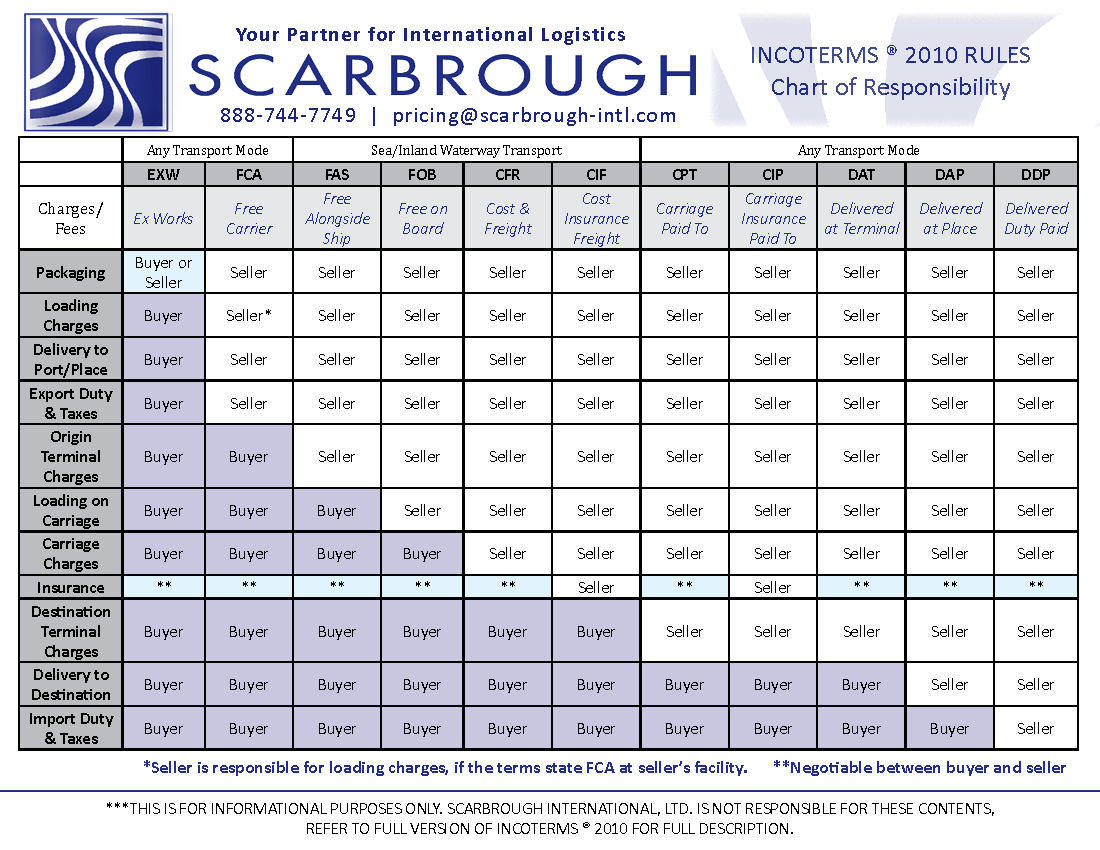Do you know your Incoterms®?
Incoterms® 2010
The Incoterms® were created by the International Chamber of Commerce (ICC) in 1936 with the purpose of providing provide a set of international rules for the interpretation of the most commonly used trade terms in foreign trade. The Incoterms® are rules intended to communicate the responsibility, costs and risks associated between a shipper and buyer, along with the transportation and delivery of the goods.
Even though the first set of Incoterms® remained in use for almost 20 years, amendments had to be made. In a world full of changes in commercial practices and international laws, the Incoterms® Rules need to be regularly updated and are reviewed every 10 years. The eighth and current version of Incoterms revision was 2010 and 2020 will bring new rules again.
Most Popular and Recommended Incoterms®:
For U.S. Imports:
EXW | Ex Works (named place)
The buyer arranges and pays for the origin collection from supplier and freight to destination.
For example: EXW Factory Shanghai – This means that the buyer pays for the origin collection of freight to U.S. destination
EX Works is an excellent term because it gives complete control of the cost to the U.S. buyer. The buyer chooses what freight forwarder to use, which means better visibility, control, and service of your freight.
FOB | Free on Board (named port)
The buyer arranges and pays for the freight on board the ship from origin to destination.
For example: FOB Shanghai – this means that the buyer pays for the freight from Shanghai Port to destination.
Free on Board is also a recommended term because it gives control of the cost to the U.S. buyer from an identifiable port. The buyer still chooses what freight forwarder to use, which means better visibility, control and service of your freight. In this case, the shipper takes care of all the origin charges.
For U.S. Exports
CIF | Cost Insurance Freight (named port)
The seller arranges and pays for the freight and insurance from origin to destination port. The buyer bears all risks of loss or damage freight from named place.
For example: CIF Busan, Korea. – This means that the seller arranges and pays for freight to Busan port.
Cost Insurance and Freight is a great term for U.S. Exports because it provides control and visibility to you here at origin. You choose the freight forwarder, which means better control, as you ensure shipment is delivered to the selected port. At that point, all costs and import responsibilities will be placed on your buyer.
Incoterms® 2010 Training
What you will learn:

